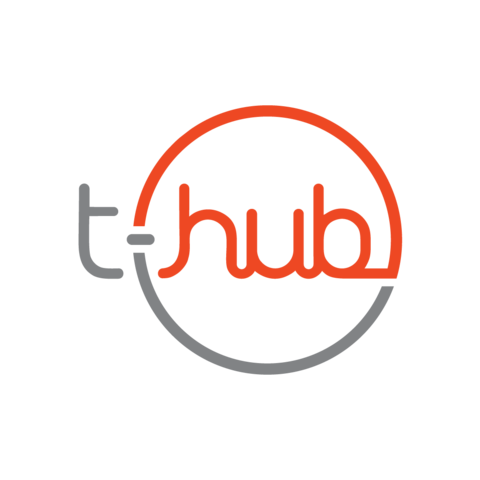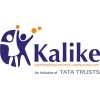
Website UNDP
Background
UNDP is committed to achieving workforce diversity in terms of gender, nationality and culture. Individuals from minority groups, indigenous groups and persons with disabilities are equally encouraged to apply. All applications will be treated with the strictest confidence.
UNDP does not tolerate sexual exploitation and abuse, any kind of harassment, including sexual harassment, and discrimination. All selected candidates will, therefore, undergo rigorous reference and background checks.
UNDP has been working in India since 1951 in almost all areas of human development. Together with the Government of India and development partners, we have worked towards eradicating poverty, reducing inequalities, strengthening local governance, enhancing community resilience, protecting the environment, supporting policy initiatives and institutional reforms, and accelerating sustainable development for all.
With projects and programmes in every state and union territory in India, UNDP works with national and subnational government, and diverse development actors to deliver people-centric results, particularly for the most vulnerable and marginalized communities. As the integrator for collective action on the Sustainable Development Goals (SDGs) within the UN system, we are committed to supporting the Government of India’s national development vision and priorities and accelerating the achievement of the SDGs for the people and the planet.
UNDP India’s current Country Programme, 2018-2022, is in its final year of implementation. Our new Country Programme (2023-2027), which comes into effect in 2023, builds on our prior work and aims to provide an integrated approach to development solutions in three strategic portfolios:
- Strong, accountable and evidence-led institutions for accelerated achievement of the SDGs
- Enhanced economic opportunities and social protection to reduce inequality, with a focus on the marginalized
- Climate-smart solutions, sustainable ecosystems and resilient development for reduced vulnerability
South-South cooperation, gender equality and social inclusion are promoted across the pillars. The programme is supported by a framework of renewed partnerships and blended finance solutions, strategic innovation and accelerator labs, and data and digital architecture.
You are invited to join a team of future-smart development professionals to support India in achieving the national and globally agreed goals. As part of the UNDP team, your focus will be to work with diverse stakeholders to find country-specific solutions that lead to sustainable development and reach those furthest behind first.
Government of India has accorded high priority and adopted multifaceted development strategies to promote socio-economic growth of Scheduled Tribes (STs) constituting 8.6% of the India’s total population as their human development indicators with regards to health, education, gender and other indices are well below the national average.
The Ministry of Tribal Affairs (MoTA) being the nodal Ministry for overall policy, planning and coordination of programmes for development of STs. Various schemes and programmes are being implemented by MoTA such as Special Central Assistance to Tribal Sub Scheme (SCA to TSS); Grant under Article 275(1) of the Constitution of India; Post-Matric Scholarship for ST Students; Conservation-cum-Development Plan for Particularly Vulnerable Tribal Groups, Support to Tribal Research Institutes, Grant in Aid to Voluntary organizations etc.
MoTA is making concerted efforts for revamping and strengthening of Tribal Research Institutes (TRIs) to enable them to emerge as knowledge hub in the matters of ST by engagement them in quality research, evaluation & documentation and training & capacity building on tribal issues. Besides, Ministry is collaborating with various reputed organizations for further strengthening the research on pertinent tribal development issues.
In the last few years, Ministry has undertaken various path breaking initiatives in the area of digital technology by developing end-to-end digital solutions for e-governance – digitalization of Scholarship Schemes, digital monitoring of Scheduled Tribe Component etc. The all-pervasive Digital-Initiative has brought a paradigm-shift from paper-based to data-driven e-governance model has been recognized at various platforms.
One of the key interventions under the MoTA-UNDP project ‘Enhancing effectiveness of tribal development programmes in India’ is focused towards strengthening/revamping of Tribal Research Institutes, promote e-governance for brining development and operational effectiveness and demonstrate innovative, scalable, integrated development solutions in tribal dominated areas.
Duties and Responsibilities
UNDP proposes to hire a Project Analyst on E-governance and Research to support MOTA and aid the team in CPMU on knowledge management. The Analyst on E-governance and Research will provide overall technical and coordination support to MoTA for integrating e-governance tools within different schemes/programmes, strengthening of TRIs and promoting innovation in tribal development. The Project Analyst E-governance and Research will be part of the Central Project management Unit and will work under the overall supervision of the coordinator CPMU and in close collaboration with the UNDP Programme Officer and Project Team members. The CPMU will function under the overall guidance of the Joint Secretary, MOTA.
- Coordination and establishing effective consultations with the State Governments for achieving the objectives of the schemes ‘Support to Tribal Research Institute (TRIs)’ and ‘Tribal Festival, Research Information and Mass Education’ as well as supporting organizing cross learning events, knowledge dissemination, capacity building workshops etc.
- Develop digital tools and mechanisms to capture and disseminate results/findings from research/studies being undertaken by TRIs and other agencies supported by the Ministry and to assess the impact and effectiveness of allocation and utilization of resources
- Coordination and facilitation in organizing Appraisal Committee meetings including review of proposals from States and other organisations / Centre for Excellences (CoEs).
Review and analysis of documents / data sets based on need in connection with effective operation of the schemes and discharge of assigned responsibilities of the concerned Programme Division - Support e-Governance agenda of the Ministry by designing and rolling out of digital solutions for improved governance of tribal programmes/schemes
- Conceptualize research ideas in emerging areas that are aligned with the Ministry’s mandate and prepare concept note and coordinate with appropriate agencies to conduct the research.
- Ensure that project contributes to the promotion of gender equality by reaching, involving and benefiting both women and men in its activities (gender mainstreaming)
Competencies
Core Competencies
- Achieve Results: LEVEL 1: Plans and monitors own work, pays attention to details, delivers quality work by deadline
- Think Innovatively: LEVEL 1: Open to creative ideas/known risks, is pragmatic problem solver, makes improvements
- Learn Continuously: LEVEL 1: Open minded and curious, shares knowledge, learns from mistakes, asks for feedback
- Adapt with Agility: LEVEL 1: Adapts to change, constructively handles ambiguity/uncertainty, is flexible
- Act with Determination: LEVEL 1: Shows drive and motivation, able to deliver calmly in face of adversity, confident
- Engage and Partner: LEVEL 1: Demonstrates compassion/understanding towards others, forms positive relationships
- Enable Diversity and Inclusion: LEVEL 1: Appreciate/respect differences, aware of unconscious bias, confront discrimination
Cross-Functional & Technical competencies
Business Direction and Strategy
- Strategic thinking: Ability to understand and deal with a business situation in a manner that is likely to lead to a good outcome. Knowledge and understanding of the operational frameworks in the organization and ability to make good judgments and quick decisions within such frameworks
Business Management - Evaluation: Ability to make an independent judgement based on set criteria and benchmarks -Ability to anticipate client’s upcoming needs and concern
- Working with Evidence and Data : Ability to inspect, cleanse, transform and model data with the goal of discovering useful information, informing conclusions and supporting decision-making
Business Development
- Knowledge Generation: Ability to provide managers and key stakeholders with regular feedback on the consistency or discrepancy between planned and actual activities and programme performance and results
Digital & Innovation
- Data analysis: Ability to extract, analyse and visualize data (including Real- Time Data) to form meaningful insights and aid effective decision making
Required Skills and Experience
Education:
- Master’s degree in any of the following areas -Social Sciences, Development Studies, Rural Development, Technology, Public Policy from national/international institutions of repute; or
Bachelor’s degree in any of the following areas -Social Sciences, Development Studies, Rural Development, Technology, Public Policy from national/international institutions of repute with 4 years of working in the development sector
Experience:
- At least 2 years of years of experience of working in the development sector or Bachelor’s degree with 4 years of working in the development sector
- Domain knowledge tribal development and social inclusion will be preferred
- Experience of working with the Central/State Government would be an added advantage
- Experience of conceptualizing ICT based applications for e-governance Experience in planning, designing, monitoring and evaluation of development programmes and schemes for marginalized communities
- High-level of IT/computing skills (minimum: Microsoft Outlook, Word, Excel, PowerPoint)
- Good drafting and writing skills in English and Hindi
Language:
- Excellent knowledge of written and spoken English is essential. Knowledge of local language is desirable.
Note: This position is open for India nationals only
To apply for this job please visit estm.fa.em2.oraclecloud.com.





